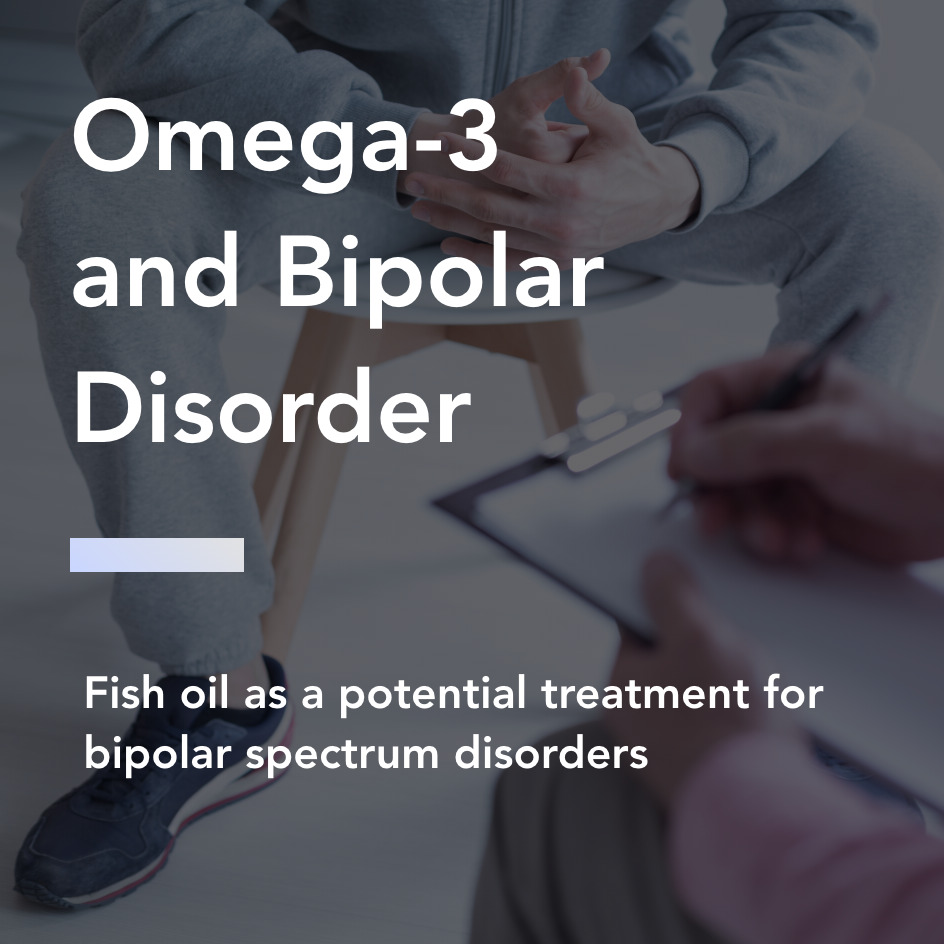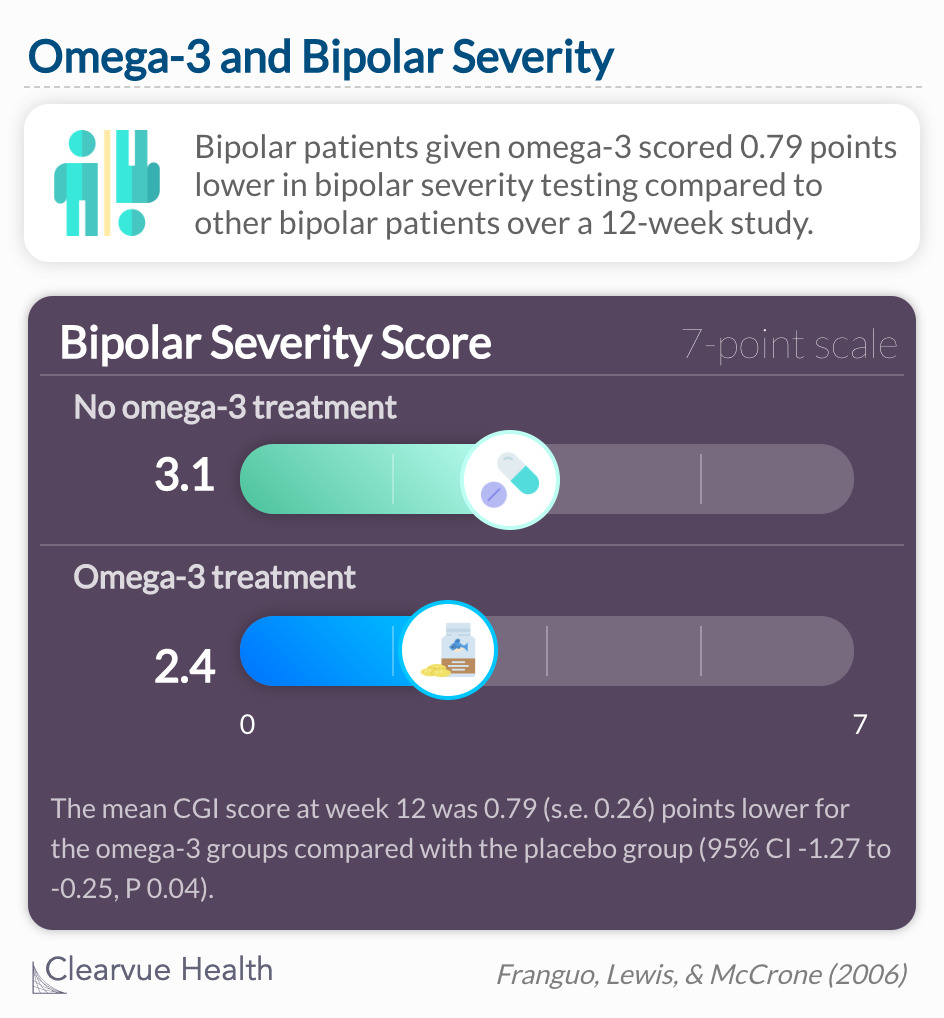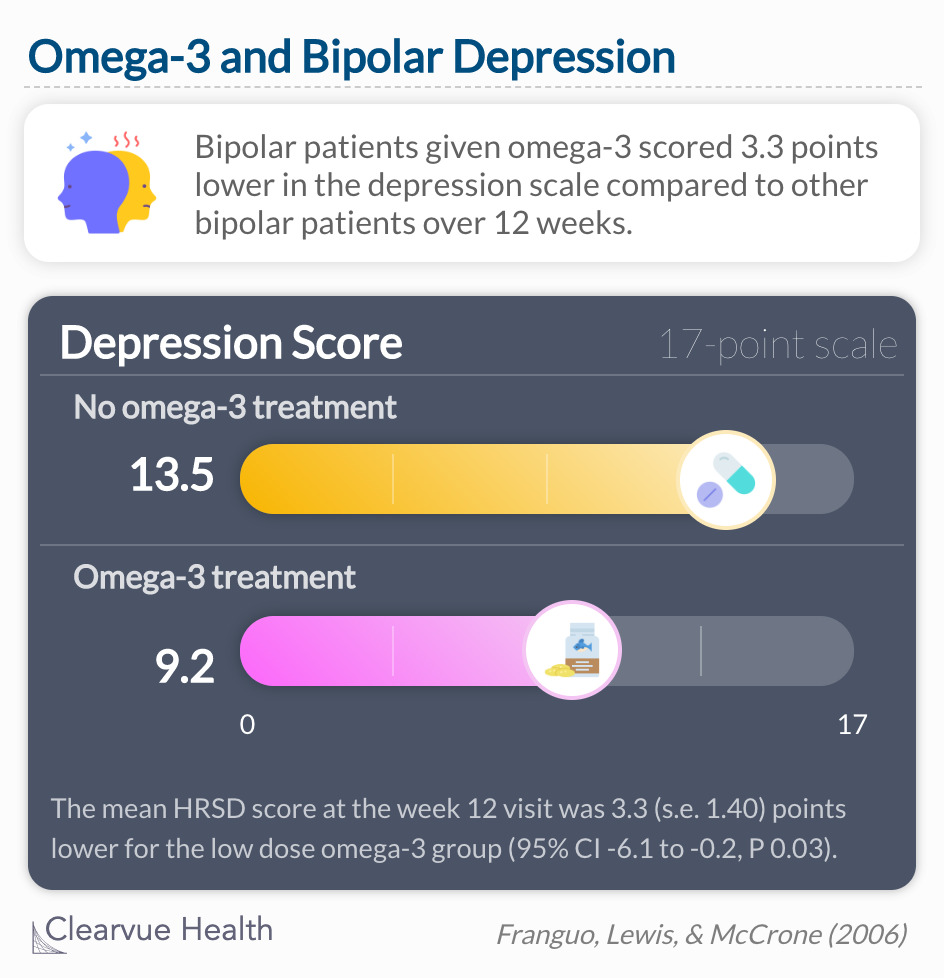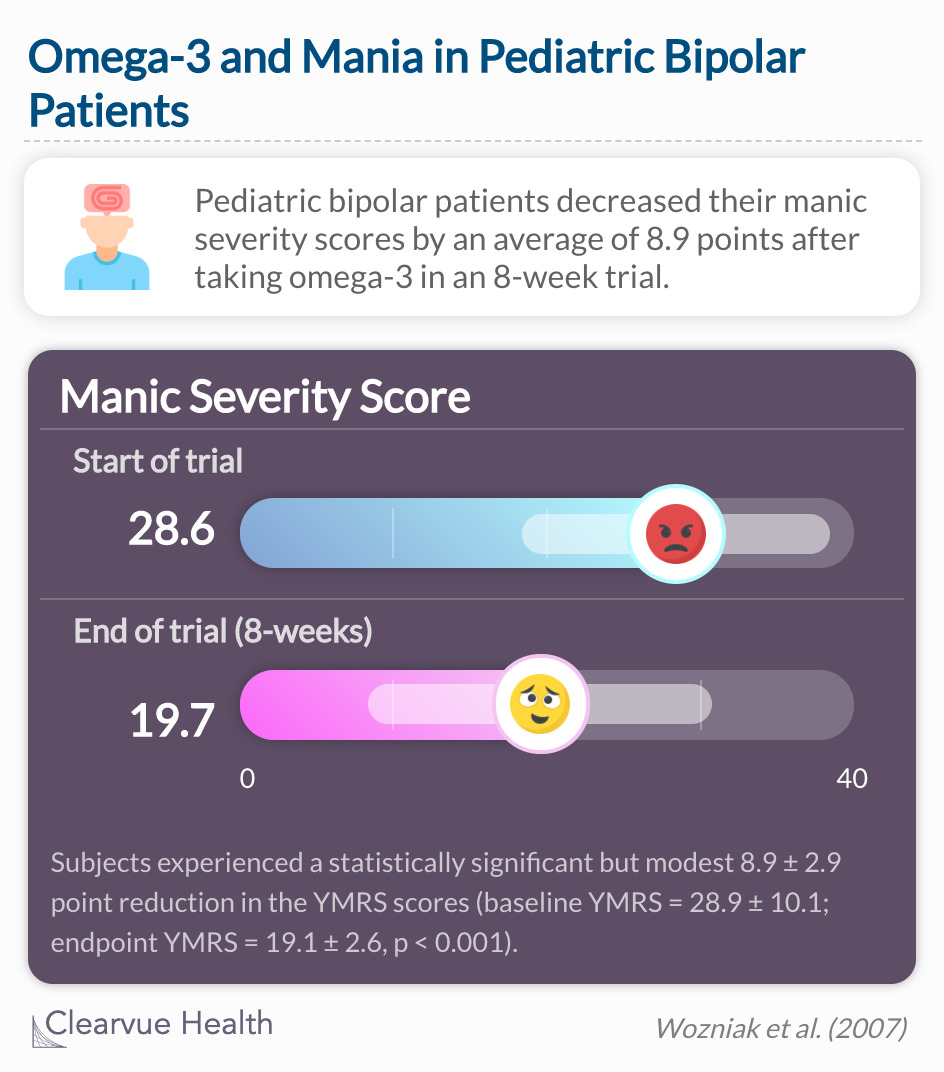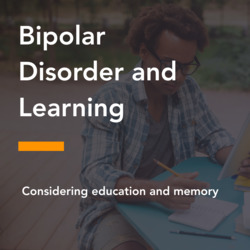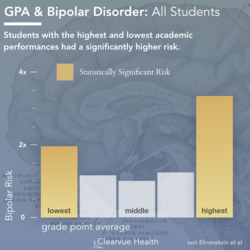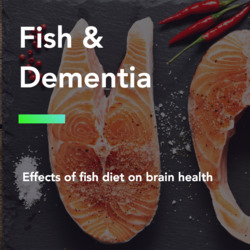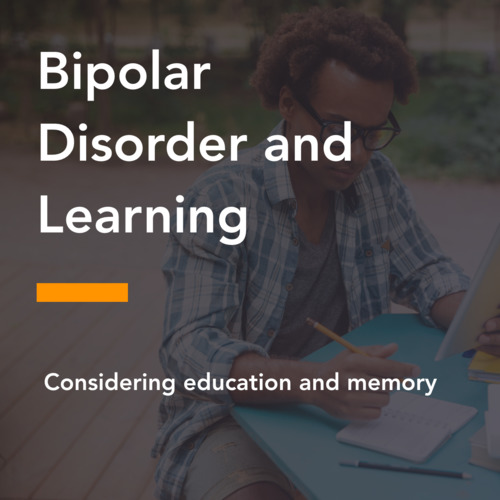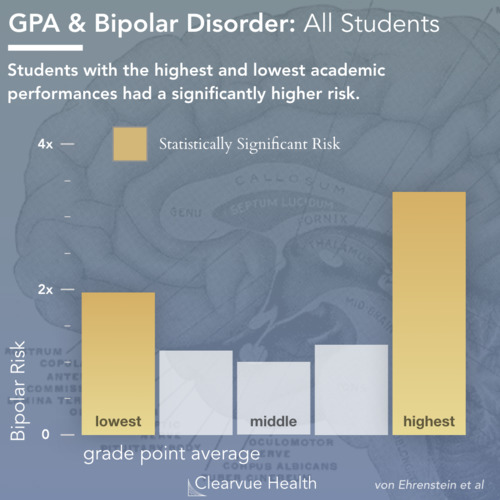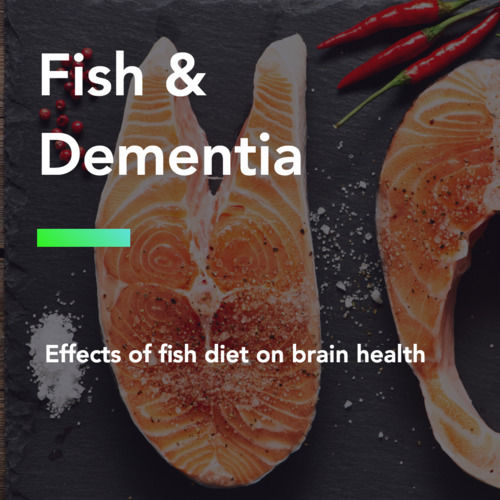“
Bipolar disorder is a brain disorder that causes extreme changes in mood and behavior. People with bipolar disorder can feel much happier or much sadder than normal.
UpToDate
Patients with bipolar disorder are treated with FDA-approved drugs and psychotherapy. Researchers are regularly looking for new ways to treat patients with mood disorders. Omega-3 fatty acid, found in fish oil, has shown promise in its therapeutic abilities.
Omega-3 for bipolar patients
Researchers organized a 12-week study to measure the potential of omega-3 as a treatment for bipolar disorder. They recruited 75 participants, mostly with bipolar I and a few with bipolar II. Participants were either given omega-3 supplements or an oil alternative. Over the study period, researchers closely monitored mood changes and used standardized scoring tools.
Source: Efficacy of Ethyl-Eicosapentaenoic Acid in Bipolar Depression: Randomised Double-Blind Placebo-Controlled Study
Researchers assesses the severity of bipolar disorder with a 7-point score scale. At the end of the study point, patients given omega-3 had a lower severity score and had symptom improvement.
Depression is one of the most common symptoms of bipolar disorder. Researchers used a 17-point scale to measure depressive symptoms. By the end of the study, patients given omega-3 had the lowest depression scores and therefore say the greatest improvement.
Omega-3 for pediatric patients
Similar studies have also been conducted on pediatric bipolar patients. This is a small sample of patients, since the typical age of bipolar disorder onset is around 25 years old. The study recruited 20 subjects, age 6 to 17, for an 8-week trial. They used a standardized scale to quantify the severity of their manic symptoms.
“
Mania often causes difficulty maintaining relationships with friends and family, and can interfere with work or other responsibilities. During a manic episode, your moods can change rapidly from euphoria to depression or irritability.
UpToDate
Source: Omega-3 fatty acid monotherapy for pediatric bipolar disorder: A prospective open-label trial
Half of the subjects saw at least a 30% reduction in manic severity scores, and 7 of them had a 50% reduction by the end of the trial. Researchers identified a dose response, meaning that children who took higher doses of omega-3 saw the greatest improvement. However, only 3 subjects were taking a low dose and 17 were taking a high dose, which is not an even distribution. Because of this fact, the dose response could be due to chance.
Is omega-3 a trusted medicine yet?
Though these studies are promising, there have also been a number of studies that did not find significant results. Omega-3 is not an evidence-based medicine yet, and scientists have not determined the best way to use it. Studies differ in dosing, length, and sample demographics. It will require continued experimentation to determine the optimal use of omega-3.
